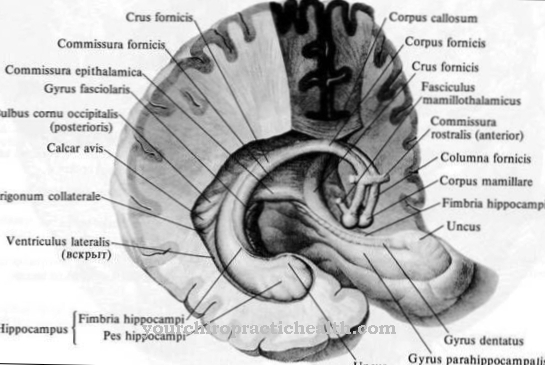Good and stable relationships have a major impact on our well-being, because good communication and the feeling of being able to trust strengthen the body and mind of every individual. Strongly attached people are happier than those who have deficits in the Ability to bind exhibit. Many studies confirm this. The foundations for the human ability to bond are laid very early in childhood.
What is the ability to bind?

Psychology understands the ability to bond as the human ability to enter into long-lasting and emotionally balanced relationships with other people.
From the beginning of life, people want to go beyond themselves and create connections. But in order to be able to bond permanently, you need a stable personality and a healthy ability to resonate in the emotional area.
The basic neurobiological equipment to develop one's own ability to bond is present in every person. Whether the genetic tools provided by nature can also be used depends on the experiences that humans make in the first years of their lives.
What is learned in the early phase of life can be applied at a later point in time: If children have good experiences with other individuals in their environment, then they will most likely also be able to relate as adults.
Modern neurobiology assumes that our genes can only perceive their function in interaction with the outside world. In contrast to adults, who can shape their relationships themselves, newborns and children are dependent on the gift of good relationships.
As a social being, man has a need for contact; Loneliness is very stressful for him.
Function & task
If the need for relationships is not adequately met, the person feels lonely. And the feeling of loneliness is associated with a pain that prompts people to take action, to avert isolation.
The willingness to work on one's own relationships is given in a person capable of bonding. Because social behavior has many advantages: people experience support, security and a feeling of belonging in relationships. You receive confirmation and appreciation from others.
In addition, trust in another person brings freedom with it. Those who have real bonds have fewer worries and live more carefree, because they know that in an emergency there are people they can rely on. A strong network gives composure and courage - and ensures survival in a crisis. This also means that there is greater willingness to take on challenges.
In many studies the American loneliness researcher John Cacioppo found that people who live without social support have a shorter life expectancy than those with stable relationships. Loneliness is just as bad for your health as being overweight, smoking and inactivity.
But attachment also means work - constantly developing your own ability to bond is a life issue. In order to be able to interpret the signals of the other person appropriately, the training of empathic skills is an important key to improved communication.
Helpful questions to check your ability to bond are: Do I find it easy to open up to other people? Or do I distance myself quickly because there is a fear of closeness? Is it possible for me to talk about feelings or is everything habitually resolved with myself?
You can find your medication here
➔ Medicines to calm down and strengthen nervesIllnesses & ailments
The way people shape their bonds tells us what they experienced in early childhood and what they learned from their closest caregivers. If the environment is “healthy”, the child can develop a normal sense of distance and closeness. In cases in which positive experiences are largely absent in childhood, the adult's ability to bond will find it difficult to develop. The
There are many reasons for an inability to bond: If, for example, the parents are distant from their offspring, people will have problems showing and living emotional and physical closeness, because they don't know any other way.
Relationship patterns such as "strong striving for harmony with a tendency to avoid arguments" or "very strong demarcation from the past and parental patterns" are also traced back in psychology - just like the repetition of relationship models from childhood - to difficult situations in the early years of life.
Since the ability to bond always also means giving the other person (e.g. the partner) their freedom, it is also destructive for a relationship if one part wants to control or - driven by fear of loss - is very jealous. It is also conceivable and complicated for a bond that one partner has never broken away from their parents and is still dependent on their opinion.
But of course nobody is forced to stick to the patterns described.Therapy and coaching can help to discover and redefine one's own attachment capacity and to leave the old patterns behind.
Psychopathological disorders such as schizophrenia, paranoia and borderline personality disorder have a higher need for therapy with less chance of success (with regard to the ability to bond). Neurological development disorders such as Asperger's syndrome and autism are also characterized by impaired attachment capacity.














.jpg)













